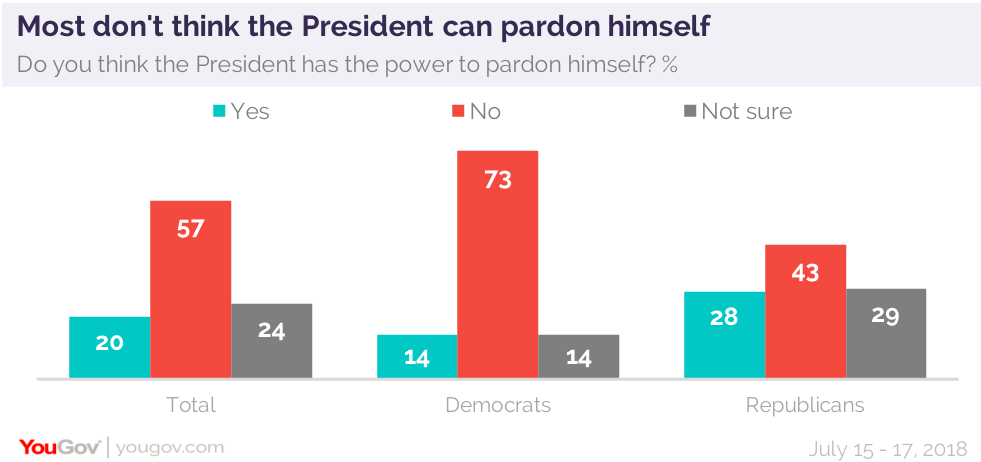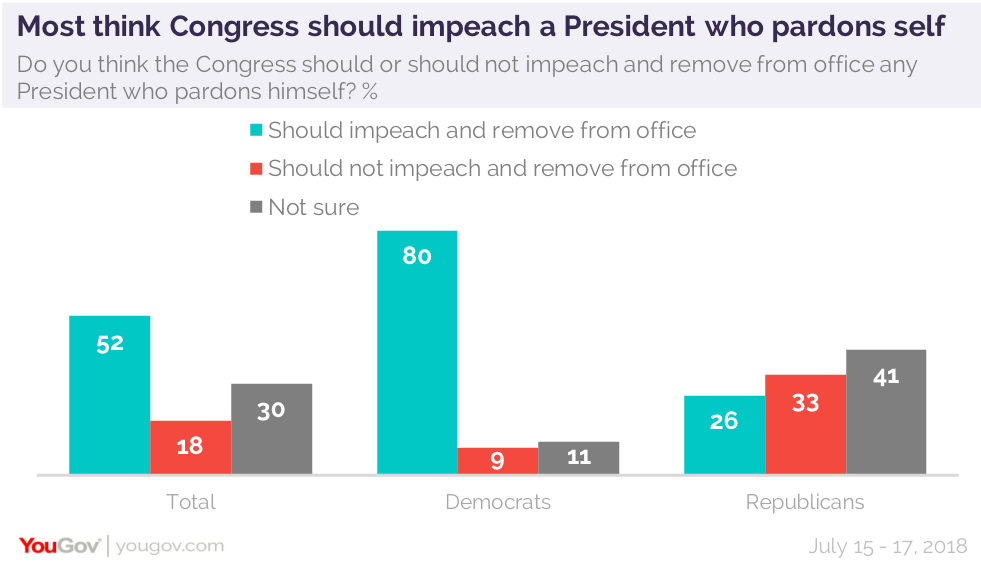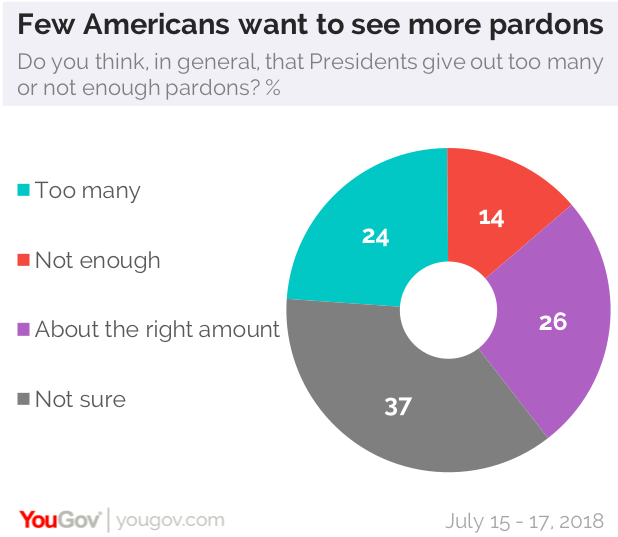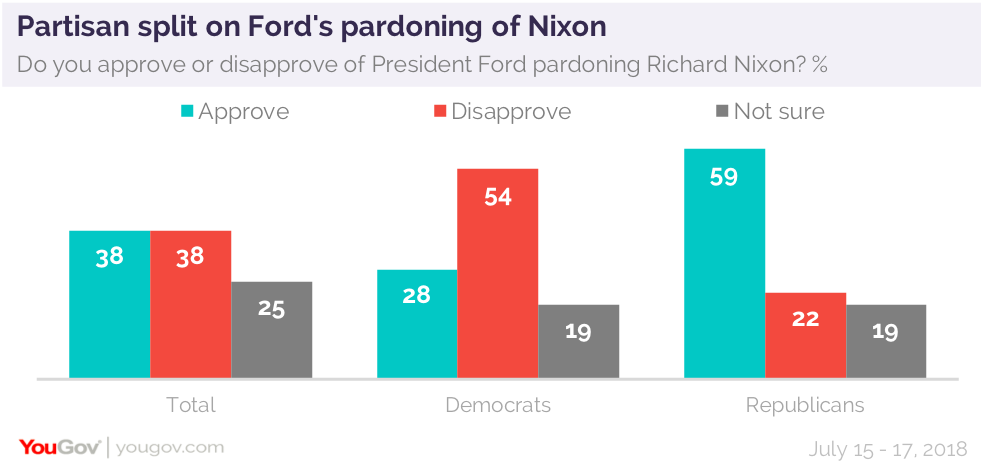Most Americans think that a President who pardons himself should be impeached
President Donald Trump has asserted his right to pardon himself (while noting he has done nothing requiring a pardon), but in the latest Economist/YouGov Poll, Republicans and Democrats alike aren’t so sure a President can do that. By nearly three to one, Americans do not think the President has the power to pardon himself.

More than a quarter of Republicans say the President does have that power, though more disagree. Those Republicans who supported the President in the GOP primaries are even more sure: by 36% to 37%, they think the President can pardon himself.
But while the belief that a President cannot pardon himself crosses party lines, those lines reassert themselves somewhat when people are asked what should happen if the President does in fact issue himself a pardon. A majority overall think a President who does that should be impeached and removed from office; although a quarter of Republicans agree, a third disagree and the rest aren’t sure.

Most Republican agree with the President when he speaks of never needing to invoke the pardon power on himself: 72% of Republicans believe President Trump did nothing illegal in dealing with Russian officials before the Inauguration.
There is one notable distinction among Republicans when it comes to evaluating the President: those who voted for him in the primaries and caucus are much more supportive than those who favored other candidates or didn’t vote. Should the President be impeached if he uses the pardon power on himself? Those who supported Trump in the 2016 primaries say no – by more than two to one. Those who favored other candidates are evenly divided. [That difference exists on most questions about the President. Most of the 17% of Republicans who disapprove of the way he is handling his job didn’t originally support him.]
There is a general acceptance of the constitutionality of the presidential pardon: by 47% to 31%, the public approves of the president having this power. But one in four say it is too often used. Fewer say there should be more pardons.

Specific pardons are seen as partisan acts, and approval or disapproval is based on who is being pardoned and which president issued it.
Republican George W. Bush commuted the sentence of I. Lewis “Scooter” Libby, a former aide to then-Vice President Dick Cheney, and Republican Donald Trump issued a presidential pardon to Libby. Republicans approve of both these actions, Democrats do not. The parties take opposite positions on Barack Obama’s commutation of the sentence given to Chelsea Manning, court-martialed for violating the Espionage Act by leaking documents to WikiLeaks.
While president have pardoned figures as diverse as Civil War Rebel General Robert E. Lee (pardoned by Gerald Ford: 39% approve, 28% do not) and former Yankee baseball owner George Steinbrenner (pardoned by Ronald Reagan: 30% approve, 22% do not), President Ford’s pardon of Richard Nixon is perhaps the most famous. It is still controversial. At first Americans opposed the pardon, but Gallup polls a decade later found support for it. Opinion of the Nixon pardon is now clearly partisan. As many people disapprove of the pardon as approve, and Republicans and Democrats take different sides.









